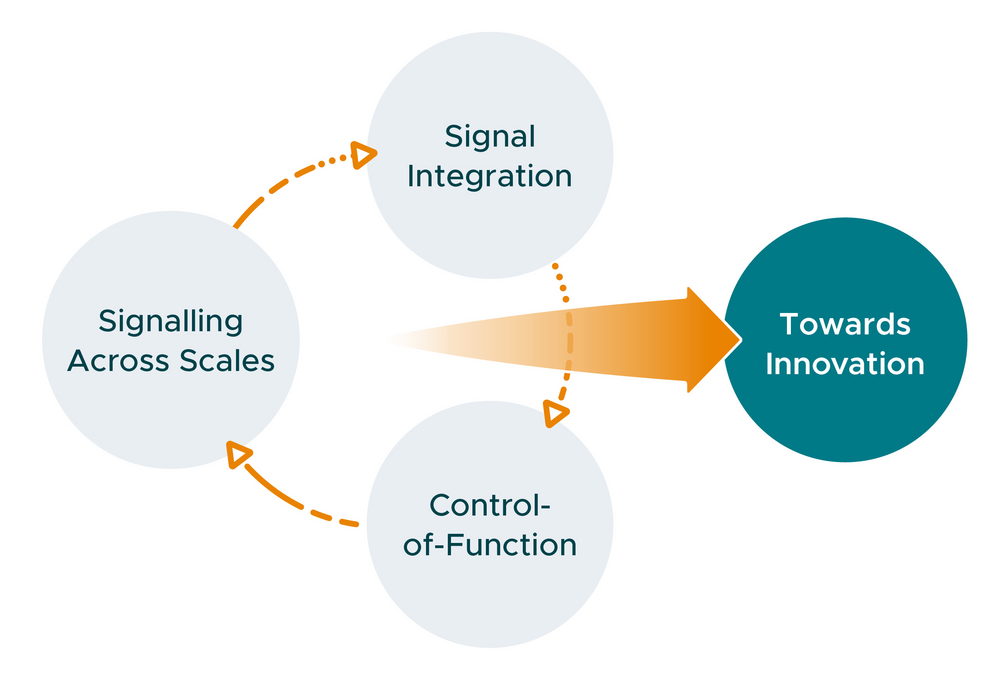

Research Programme
Biological signalling research addresses the communication processes that are fundamental to life and health. It explores how cells react to diverse conditions and cues, and how they communicate with one another to orchestrate the development and function of the organism – whether it be a human, animal or plant.
To achieve a holistic understanding of cellular signalling processes across the full spectrum of biological scales, CIBSS is pioneering a new approach that will advance the frontiers of signalling research.

Signalling Across Scales
Signalling reactions occur over a wide range of spatiotemporal scales – from molecules to organs, and from microseconds to lifetimes. By resolving the dynamics of signalling processes across spatiotemporal scales of several orders of magnitude, CIBSS will mechanistically link distinct regulatory states and dynamic processes of supramolecular signalling assemblies to physiological outcome at the scale of organelles, cells and tissues.
Signal Integration
CIBSS studies how living systems accomplish the integration of multiple signals for their decision making. Signalling processes do not occur in isolation, but rather in complex and ever-changing contexts. In order to trigger appropriate responses at the molecular, cellular and organismal levels, signals must be correctly integrated and contextualised with respect to a plethora of other ongoing signalling processes. Integrating this information about cellular identity, environmental cues, and bioenergetic and biosynthetic status is essential for organisms in order to elicit cellular decisions and achieve organisation and function on the supracellular levels. In particular, CIBSS analyses how integration occurs within supramolecular signalling assemblies and at key cellular hubs such as the nucleus and mitochondria.
Control-of-function
CIBSS is venturing beyond loss-of-function and gain-of-function approaches by engineering signalling processes and by developing new synthetic biological and chemical tools that enable precision control of signalling processes and their biological outcomes. These control-of-function technologies will accelerate research and fuel innovation



